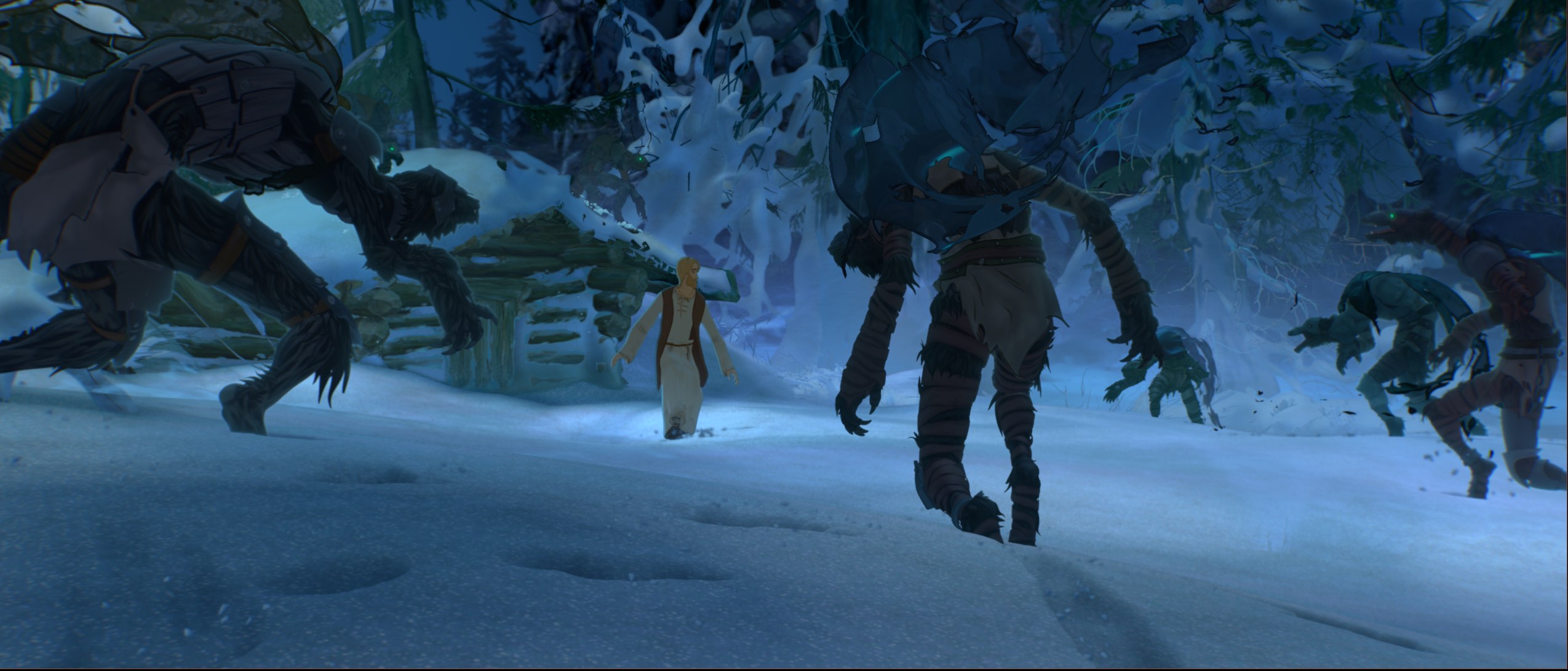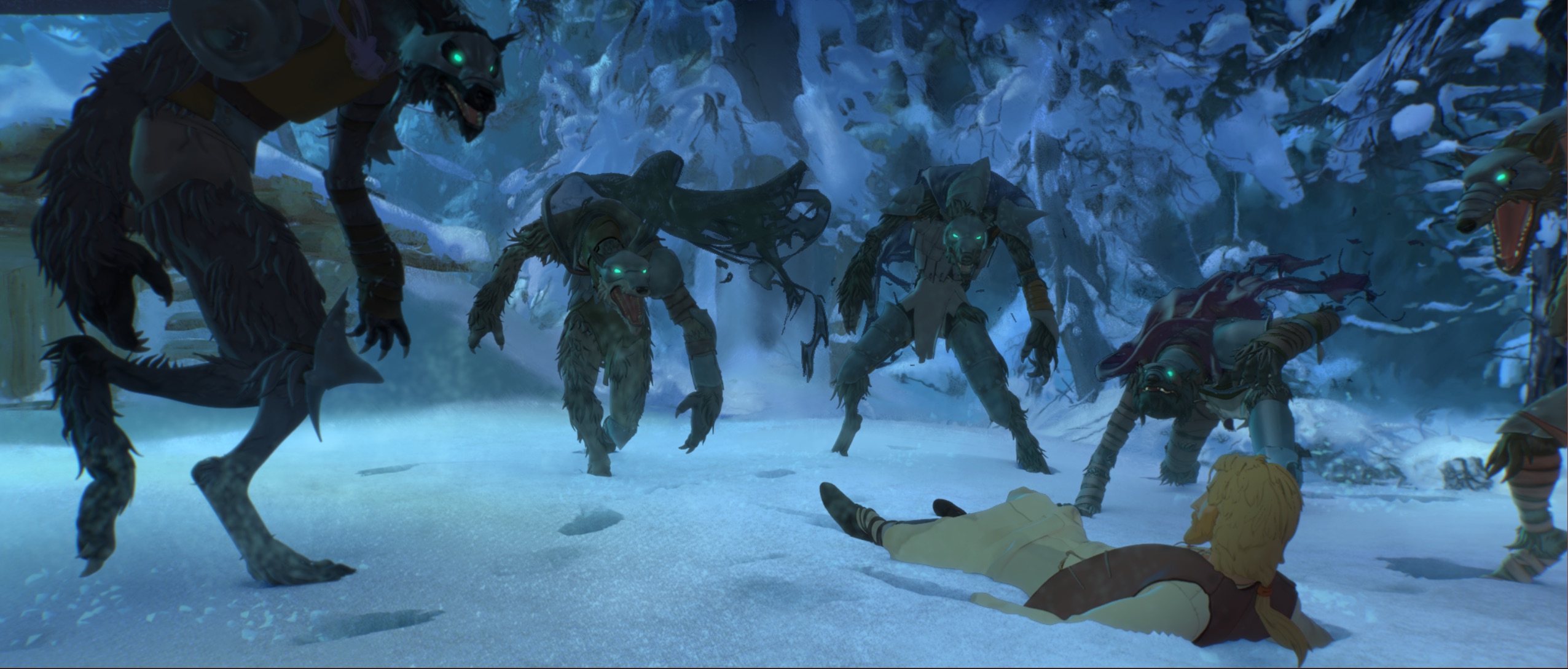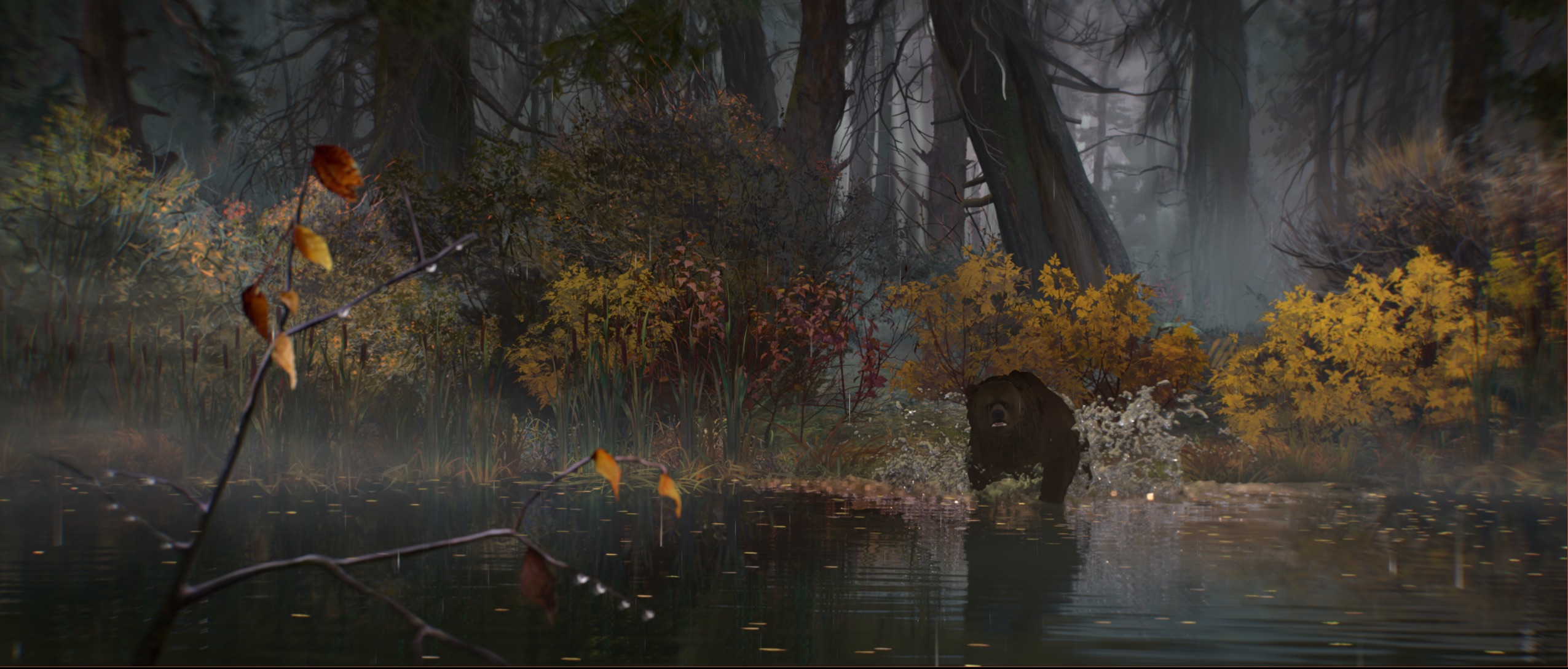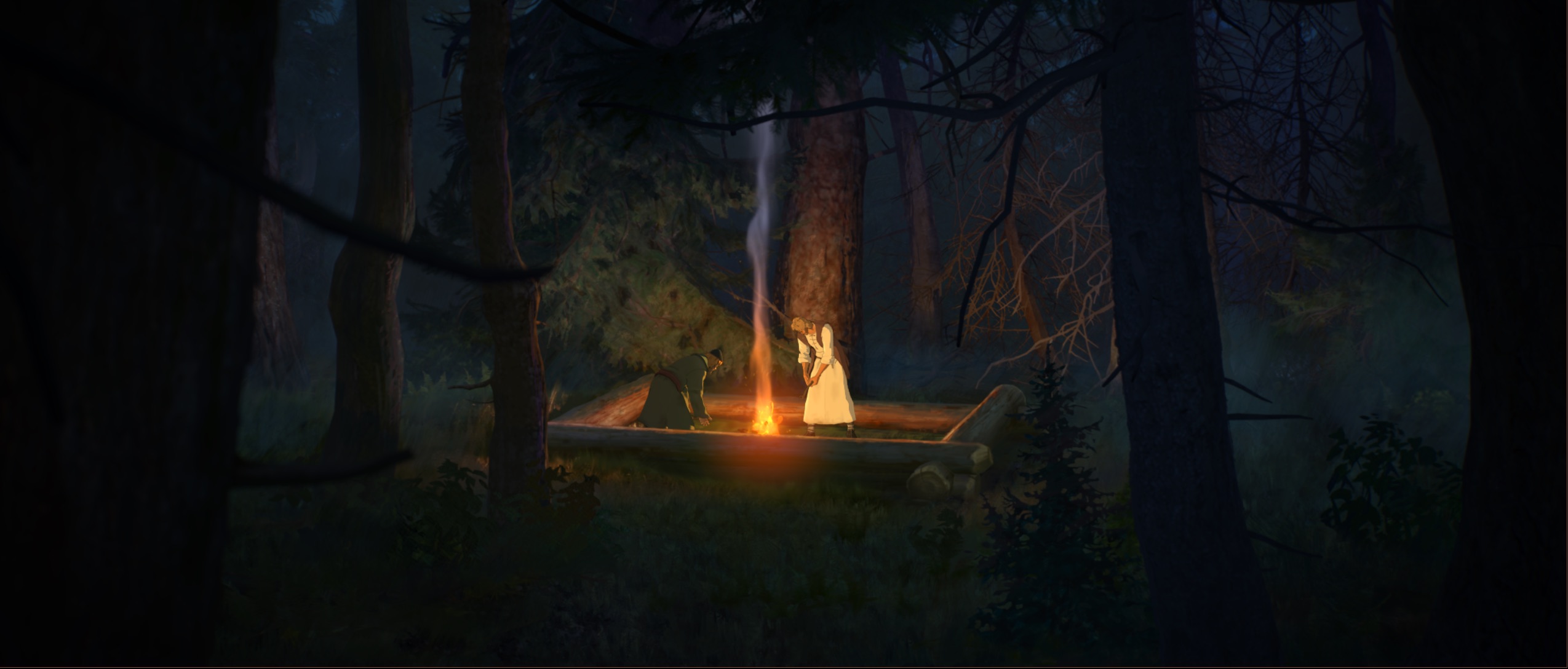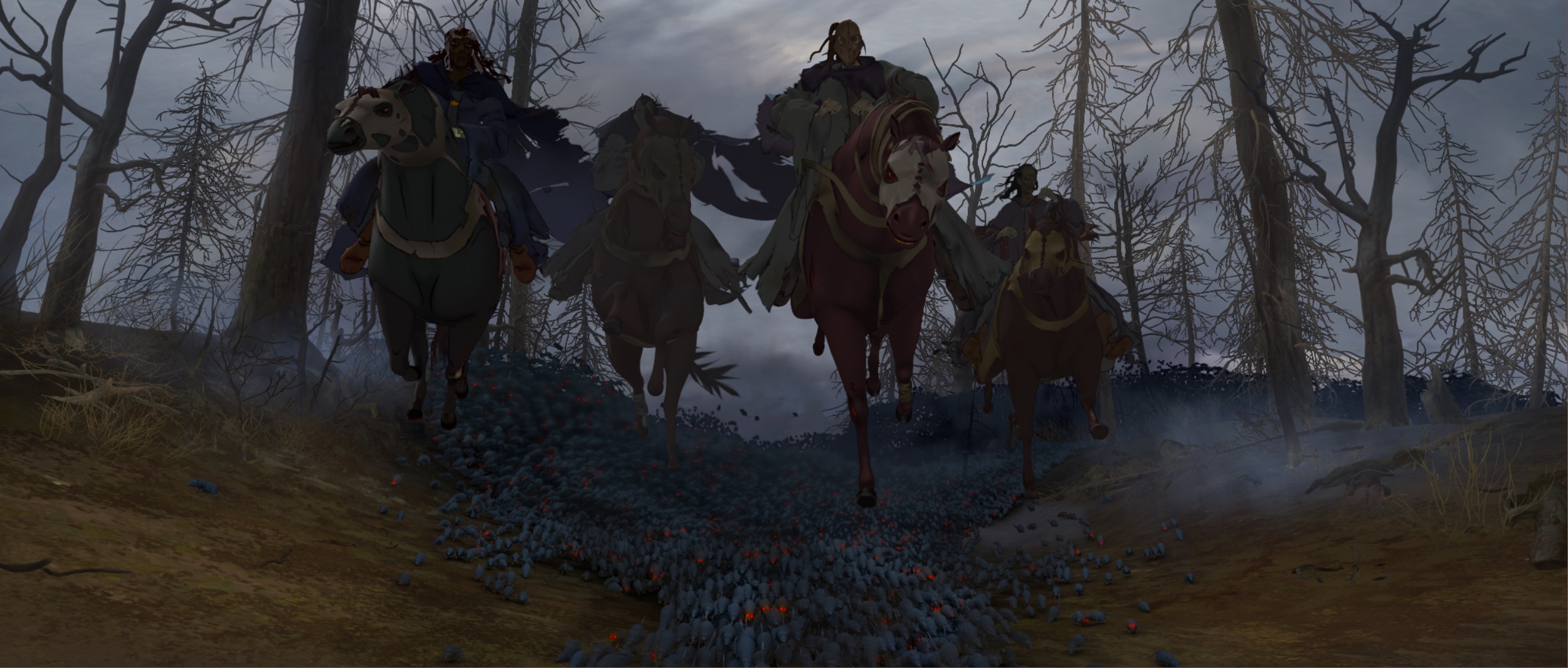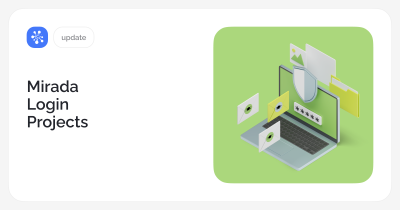Let us begin with EXCLUSIVE teaser premiere of «Sergiy Radonezhsky. The Legend of Miracle Worker» and continue further interview with Maxim Alaev, head of compositing department at
DA-Studio
«Sergiy Radonezhsky. The Legend of Miracle Worker» teaser
– Maxim, we have known each other for a long time – about 14 years, I think. So let’s start with a brief story about you. How did you get into the industry? What are you doing now and what were you doing earlier?
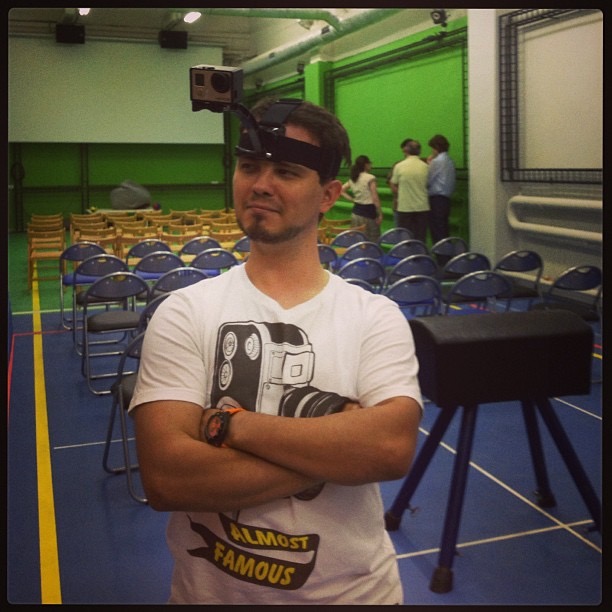
– I got into the industry through animation. It was my lifelong dream to draw cartoons. I began, slowly but surely, after graduating from the theater and art school. By some miracle, I managed to get a job at MBL Animation Studio where I, step by step, began to master phasing draftsmanship and animation.
Somehow, after classical animation I found myself at Classic Studio, where Volodya Manevich asked me if I knew where “any key” is located on the PC. I said that I knew and that was the start of my work with digital animation. Everything started at the Classic Studio, where I began to master 2D computer graphics and then 3D graphics and eventually I became a person I am now. Today, I work at Da-Studio as the head of the Compositing Team.
– Let’s talk about Da-Studio. When did you arrive there? Tell us a little about it. What does this company do? When it was established and how many people work there?
– Da-Studio was founded in 2009, I came here three years ago, so it was October 2012. The Studio was created specifically for the project titled
Sergiy Radonezhsky. The Legend of Miracle Worker (it is a full name for the project).
We have been searching for any kinds of information for a long time for historical, architectural facts, facts about Sergiy himself, how he became a living legend and our Russian Saint. A colossal amount of work was done.
We were searching for not only historical background, but also for an unusual artistic component, a visualization, from which our cartoon is made – as we call it – “an animated painting”. When the background is a painting that has come to life (for example, those of Isaac Levitan) and the painted world comes alive in this painting expanded by depth, in which a 2D hero is drawn. When I came here, they had just begun this work, that is to say that the management understood what they wanted, but didn’t completely comprehend how to make everything as beautiful as they wanted. We began to search for a way to make everything “take off” and how to render and compose it with the famous Ilya Radovilskiy.
We slowly started to compose a color picture from gray material, and we succeeded in getting what we have now. That became our pipeline, something we stand upon. We are proud of it. That is to say, that it is our picture and although I don’t know what everyone outside of the studio might think of it, but our team really loves it!
– Yes, it has an original style. How many people are working in the Studio now?
– The growth is a funny thing. When I had just joined the Studio, it occupied the 1
st floor and half of the 4
th floor. Accordingly, when the Studio grew we began to occupy the 1
st, the 3
rd and the 4
th floors, and now we already occupy the 4
th, and part of the 2
nd, the 3
rd, the 1
st and the entire 3
rd floor in another wing of the building.
Off course, we have the biggest and the best mockup pavilion in Russia. When our entire studio team gathers to watch the material, in the past a viewing room on the 1
st floor was big enough for us, and now we can hardly fit in our mockup room.
When I joined the Studio, nearly 20–25 persons were working there. That included everybody and administration as well. Today, our team is comprised of almost 160 employees, considering only those who are involved in production and are in our office. We also have remote freelancers, accountants and administration.
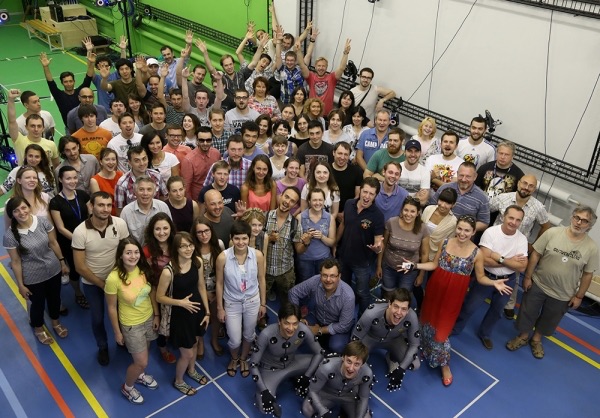
– Yes, I see. Not bad! Do you currently have other projects and if so, what is their status? Can you tell us a little about it?

– Yes, I can tell you a about it. We have already started a project called
Suvorov. Since the animated painting technology we developed is so complicated, we are going to develop and enhance it further. We have designed a product cycle in this style. The first movie is
Sergiy Radonezhsky. The Legend of the Miracle Worker, we have already started working on the second film. It is already at the stage where there is intensive modeling and setup taking place and characters are being prepared. Some tests are done with motion capturing technology, and, correspondingly, concept art is drawn, investigation of historic detail is conducted, sceneries are made specifically for Suvorov, i.e. it has been completely launched.
– Yes, I see.
– The next one is called
Pushkin. We are trying to tell about Pushkin’s fantasy stories when he was writing his fairy tales and how it all took place. I think that this is also a pretty interesting topic
We aim to speak to our children (specifically the generation of my and your children, who like to watch cartoons) and to give them a Russian hero they can look up to, who is interesting to watch, like Spiderman, the Hulk etc. We want to develop a Russian hero that our children can be proud to imitate: “I am Sergiy Radonezhsky!”, “I am Suvorov!”. Our goal is to give Russian culture a bit of a boost, as well as relaunch interesting stories and personalities.
– Truly good intentions! What are you doing on this project? What are your daily tasks?
– I am a full-fledged combat unit as a compositor as Vlad Akhtyrsky says. In the former Soviet republics, we used to call ourselves “composers”, but when Vlad visits us, he says “comrade compositors”. Now, I do not know how to pronounce it correctly.
I am a full-fledged compositor. I produce at the level of our entire team, and I also am responsible for tasks in Cerebro. I form a plan and allocate tasks for the team.
The material comes from the Art Department who works with us. It is made up of art directors – women and young girls. It is a workshop, where beautiful girls do their work. They create concept arts and color explication of episodes. When they are done with it, they transfer it to me and I distribute the episode block by block to Cerebro, for specific assignments.
In general, I oversee quality control, but mostly from a technical aspect now. When I arrived, I was also involved in the artistic aspect (i.e. I monitored the sky color, tracked light warmness, shadow coldness and vice versa).
Now, I mostly control technical quality, so that the layout of layers is correct. Sometimes something still needs pre-tracking. Even though we have 3D, for parallax to be correct everywhere this work must be supervised and there is also a lot of manual labor.
We continue inventing technologies and I try to follow the trends and to take part in this since it is interesting and I think it is the future.
Images from the show
– Since we have already mentioned our software product, tell me, how long have you been using Cerebro? Did you face any difficulties in the beginning?
– You know when I came to the Studio we used Shotgun as a project management system. It was a pretty rudimentary application for us. Everyone seemed to understand that we needed some sort of project manager, but they didn’t understand the purpose of it or how to use it. Only managers used it and they didn’t really understand why.
As you know, I have been adept at using Cerebro for rather long time and I suggested using it on a project it to my supervisor as an alternative that was more cost effective and convenient to use. In addition, I was familiar enough with it that I could teach it. There also was support in Russian and it was possible to call a technical specialist into our the office if needed.
As you remember, we made this decision rather swiftly and implemented it. We initially faced quite a few problems because when we started using Cerebro three years ago, it was customized for VFX and video commercials that directly communicated with the client, so it was best suited for quick response to corrections and modifications and it lacked some tools to work with animation.
I can tell you that I have huge respect for the advancements that were made. I visited you and we just sat down and seriously debated whether all these statuses and other functions are needed. Thank you very much that in these 3 years you have always made improvements and greatly enhanced your product.
– I see. We will do our best to go forward! How long did it take for Cerebro to be accepted by the team?
– You know, I don’t even remember how long. It blended in naturally. It has the advantage that many people have already worked with it. So, I was mostly teaching managers, explaining to them where the Grantt chart is located, how to get statistics, where to look for report amount per employee.
For example, statistics are very convenient. Our girls in accounting conclude how many shots per month is made by each person and decide how to award bonuses.
Cerebro was integrated very quickly and everyone got used to it fast. Now we can’t imagine our work without it. We are even joke: “Write me in Cerebro”.
All production is based on assets. We have our own development. I see that you will ask me later if a built in asset-manger is needed in Cerebro, but we have already written our own, and implemented it successfully. People simply take tasks, they report to Cerebro automatically via script, and upload their dailies. Our asset-browser operates with Cerebro. Everything needed is being written continuously, upgraded constantly, and Cerebro is directly connected to our pipeline.
– We also are trying to do our best. We made a decision to actively develop API, which allows us to do tasks such as Assets. We recently released a new version with a new API based on the Cerebro interface, which will allow it to change completely, by subtracting or adding any of the keys (i.e. not only menu items like now). While we are still developing our built-in Assets, we must still remember the needs of current users and, so, the answer is yes. This API, allows Cerebro to be expanded and integrated with its developments. Good. Now, this question… What do you use as a manager? Maybe you draw over the shots, i.e. audiovisual review?
– Making notes and outlines is everything for us. Yes, I am making notes constantly, we even solve lighting problems, i.e. we arrange the lighting directly in Cerebro, draw the scheme, where the backlighting is from certain side, red is from the other side, blue where it gonna be keyed, etc.
– I see. So, the next question: Do you have any suggestions on how to improve our product? What is a “pain”, pardon me?
– What is a pain? A lot of small issues. For example, “Active Task” cannot be removed from the interface. I have my own GUI setup for Cerebro and I am not able to fit it to the window at the background so it’s not on top of everything yet also always in the interface.
Also, I cannot delete a hash tag. We employ visual artists and scriptwriters… Well, about hash tags… You know, zog-zog, work-work, right? Etc. 🙂
– Oh, I see. I see. It is about our release which supported hash tags. People started to use them but we definitely need a tool for, let’s call it, hash tag management 🙂
– Yes!
– To find all these hash tags and to delete some of them. Then, I guess that’s all Maxim! Thank you very much for the interview!
최대 사용자 50명
50 GB의 클라우드 스토리지 용량
작업 수에 제한 없음
신용 카드 필요하지 않음
 – I got into the industry through animation. It was my lifelong dream to draw cartoons. I began, slowly but surely, after graduating from the theater and art school. By some miracle, I managed to get a job at MBL Animation Studio where I, step by step, began to master phasing draftsmanship and animation.
Somehow, after classical animation I found myself at Classic Studio, where Volodya Manevich asked me if I knew where “any key” is located on the PC. I said that I knew and that was the start of my work with digital animation. Everything started at the Classic Studio, where I began to master 2D computer graphics and then 3D graphics and eventually I became a person I am now. Today, I work at Da-Studio as the head of the Compositing Team.
– Let’s talk about Da-Studio. When did you arrive there? Tell us a little about it. What does this company do? When it was established and how many people work there?
– Da-Studio was founded in 2009, I came here three years ago, so it was October 2012. The Studio was created specifically for the project titled Sergiy Radonezhsky. The Legend of Miracle Worker (it is a full name for the project).
We have been searching for any kinds of information for a long time for historical, architectural facts, facts about Sergiy himself, how he became a living legend and our Russian Saint. A colossal amount of work was done.
We were searching for not only historical background, but also for an unusual artistic component, a visualization, from which our cartoon is made – as we call it – “an animated painting”. When the background is a painting that has come to life (for example, those of Isaac Levitan) and the painted world comes alive in this painting expanded by depth, in which a 2D hero is drawn. When I came here, they had just begun this work, that is to say that the management understood what they wanted, but didn’t completely comprehend how to make everything as beautiful as they wanted. We began to search for a way to make everything “take off” and how to render and compose it with the famous Ilya Radovilskiy.
We slowly started to compose a color picture from gray material, and we succeeded in getting what we have now. That became our pipeline, something we stand upon. We are proud of it. That is to say, that it is our picture and although I don’t know what everyone outside of the studio might think of it, but our team really loves it!
– Yes, it has an original style. How many people are working in the Studio now?
– The growth is a funny thing. When I had just joined the Studio, it occupied the 1st floor and half of the 4th floor. Accordingly, when the Studio grew we began to occupy the 1st, the 3rd and the 4th floors, and now we already occupy the 4th, and part of the 2nd, the 3rd, the 1st and the entire 3rd floor in another wing of the building.
Off course, we have the biggest and the best mockup pavilion in Russia. When our entire studio team gathers to watch the material, in the past a viewing room on the 1st floor was big enough for us, and now we can hardly fit in our mockup room.
When I joined the Studio, nearly 20–25 persons were working there. That included everybody and administration as well. Today, our team is comprised of almost 160 employees, considering only those who are involved in production and are in our office. We also have remote freelancers, accountants and administration.
– I got into the industry through animation. It was my lifelong dream to draw cartoons. I began, slowly but surely, after graduating from the theater and art school. By some miracle, I managed to get a job at MBL Animation Studio where I, step by step, began to master phasing draftsmanship and animation.
Somehow, after classical animation I found myself at Classic Studio, where Volodya Manevich asked me if I knew where “any key” is located on the PC. I said that I knew and that was the start of my work with digital animation. Everything started at the Classic Studio, where I began to master 2D computer graphics and then 3D graphics and eventually I became a person I am now. Today, I work at Da-Studio as the head of the Compositing Team.
– Let’s talk about Da-Studio. When did you arrive there? Tell us a little about it. What does this company do? When it was established and how many people work there?
– Da-Studio was founded in 2009, I came here three years ago, so it was October 2012. The Studio was created specifically for the project titled Sergiy Radonezhsky. The Legend of Miracle Worker (it is a full name for the project).
We have been searching for any kinds of information for a long time for historical, architectural facts, facts about Sergiy himself, how he became a living legend and our Russian Saint. A colossal amount of work was done.
We were searching for not only historical background, but also for an unusual artistic component, a visualization, from which our cartoon is made – as we call it – “an animated painting”. When the background is a painting that has come to life (for example, those of Isaac Levitan) and the painted world comes alive in this painting expanded by depth, in which a 2D hero is drawn. When I came here, they had just begun this work, that is to say that the management understood what they wanted, but didn’t completely comprehend how to make everything as beautiful as they wanted. We began to search for a way to make everything “take off” and how to render and compose it with the famous Ilya Radovilskiy.
We slowly started to compose a color picture from gray material, and we succeeded in getting what we have now. That became our pipeline, something we stand upon. We are proud of it. That is to say, that it is our picture and although I don’t know what everyone outside of the studio might think of it, but our team really loves it!
– Yes, it has an original style. How many people are working in the Studio now?
– The growth is a funny thing. When I had just joined the Studio, it occupied the 1st floor and half of the 4th floor. Accordingly, when the Studio grew we began to occupy the 1st, the 3rd and the 4th floors, and now we already occupy the 4th, and part of the 2nd, the 3rd, the 1st and the entire 3rd floor in another wing of the building.
Off course, we have the biggest and the best mockup pavilion in Russia. When our entire studio team gathers to watch the material, in the past a viewing room on the 1st floor was big enough for us, and now we can hardly fit in our mockup room.
When I joined the Studio, nearly 20–25 persons were working there. That included everybody and administration as well. Today, our team is comprised of almost 160 employees, considering only those who are involved in production and are in our office. We also have remote freelancers, accountants and administration.

 – Yes, I can tell you a about it. We have already started a project called Suvorov. Since the animated painting technology we developed is so complicated, we are going to develop and enhance it further. We have designed a product cycle in this style. The first movie is Sergiy Radonezhsky. The Legend of the Miracle Worker, we have already started working on the second film. It is already at the stage where there is intensive modeling and setup taking place and characters are being prepared. Some tests are done with motion capturing technology, and, correspondingly, concept art is drawn, investigation of historic detail is conducted, sceneries are made specifically for Suvorov, i.e. it has been completely launched.
– Yes, I see.
– The next one is called Pushkin. We are trying to tell about Pushkin’s fantasy stories when he was writing his fairy tales and how it all took place. I think that this is also a pretty interesting topic
We aim to speak to our children (specifically the generation of my and your children, who like to watch cartoons) and to give them a Russian hero they can look up to, who is interesting to watch, like Spiderman, the Hulk etc. We want to develop a Russian hero that our children can be proud to imitate: “I am Sergiy Radonezhsky!”, “I am Suvorov!”. Our goal is to give Russian culture a bit of a boost, as well as relaunch interesting stories and personalities.
– Truly good intentions! What are you doing on this project? What are your daily tasks?
– I am a full-fledged combat unit as a compositor as Vlad Akhtyrsky says. In the former Soviet republics, we used to call ourselves “composers”, but when Vlad visits us, he says “comrade compositors”. Now, I do not know how to pronounce it correctly.
I am a full-fledged compositor. I produce at the level of our entire team, and I also am responsible for tasks in Cerebro. I form a plan and allocate tasks for the team.
The material comes from the Art Department who works with us. It is made up of art directors – women and young girls. It is a workshop, where beautiful girls do their work. They create concept arts and color explication of episodes. When they are done with it, they transfer it to me and I distribute the episode block by block to Cerebro, for specific assignments.
In general, I oversee quality control, but mostly from a technical aspect now. When I arrived, I was also involved in the artistic aspect (i.e. I monitored the sky color, tracked light warmness, shadow coldness and vice versa).
Now, I mostly control technical quality, so that the layout of layers is correct. Sometimes something still needs pre-tracking. Even though we have 3D, for parallax to be correct everywhere this work must be supervised and there is also a lot of manual labor.
We continue inventing technologies and I try to follow the trends and to take part in this since it is interesting and I think it is the future.
– Yes, I can tell you a about it. We have already started a project called Suvorov. Since the animated painting technology we developed is so complicated, we are going to develop and enhance it further. We have designed a product cycle in this style. The first movie is Sergiy Radonezhsky. The Legend of the Miracle Worker, we have already started working on the second film. It is already at the stage where there is intensive modeling and setup taking place and characters are being prepared. Some tests are done with motion capturing technology, and, correspondingly, concept art is drawn, investigation of historic detail is conducted, sceneries are made specifically for Suvorov, i.e. it has been completely launched.
– Yes, I see.
– The next one is called Pushkin. We are trying to tell about Pushkin’s fantasy stories when he was writing his fairy tales and how it all took place. I think that this is also a pretty interesting topic
We aim to speak to our children (specifically the generation of my and your children, who like to watch cartoons) and to give them a Russian hero they can look up to, who is interesting to watch, like Spiderman, the Hulk etc. We want to develop a Russian hero that our children can be proud to imitate: “I am Sergiy Radonezhsky!”, “I am Suvorov!”. Our goal is to give Russian culture a bit of a boost, as well as relaunch interesting stories and personalities.
– Truly good intentions! What are you doing on this project? What are your daily tasks?
– I am a full-fledged combat unit as a compositor as Vlad Akhtyrsky says. In the former Soviet republics, we used to call ourselves “composers”, but when Vlad visits us, he says “comrade compositors”. Now, I do not know how to pronounce it correctly.
I am a full-fledged compositor. I produce at the level of our entire team, and I also am responsible for tasks in Cerebro. I form a plan and allocate tasks for the team.
The material comes from the Art Department who works with us. It is made up of art directors – women and young girls. It is a workshop, where beautiful girls do their work. They create concept arts and color explication of episodes. When they are done with it, they transfer it to me and I distribute the episode block by block to Cerebro, for specific assignments.
In general, I oversee quality control, but mostly from a technical aspect now. When I arrived, I was also involved in the artistic aspect (i.e. I monitored the sky color, tracked light warmness, shadow coldness and vice versa).
Now, I mostly control technical quality, so that the layout of layers is correct. Sometimes something still needs pre-tracking. Even though we have 3D, for parallax to be correct everywhere this work must be supervised and there is also a lot of manual labor.
We continue inventing technologies and I try to follow the trends and to take part in this since it is interesting and I think it is the future.
